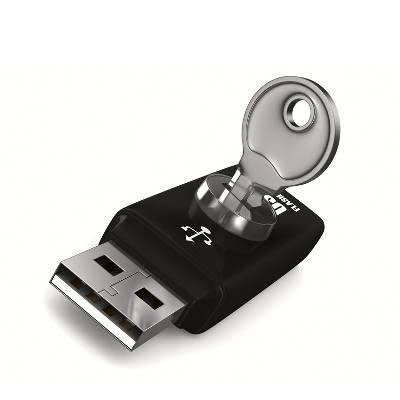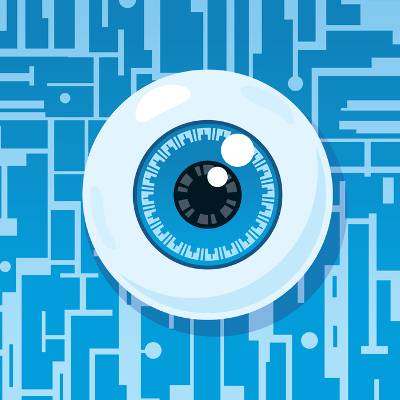Ferrum Technology Services Blog
 Yes, you read that title right. If your WiFi isn't protected, you can be hacked by the furry little creature that wanders around your backyard when you're not home. Coco, a Siamese cat from Washington, D.C., was able to discover dozens of weak or unprotected WiFi networks in his neighborhood with his high-tech collar.
Yes, you read that title right. If your WiFi isn't protected, you can be hacked by the furry little creature that wanders around your backyard when you're not home. Coco, a Siamese cat from Washington, D.C., was able to discover dozens of weak or unprotected WiFi networks in his neighborhood with his high-tech collar.
 Your office is likely full-to-bursting with devices utilizing USB technology. It's been a popular way to connect external devices to PCs since the 1.1 version was released in 1998. However, it may be the technology's popularity that will cause its downfall as hackers develop ways to use the device to their advantage.
Your office is likely full-to-bursting with devices utilizing USB technology. It's been a popular way to connect external devices to PCs since the 1.1 version was released in 1998. However, it may be the technology's popularity that will cause its downfall as hackers develop ways to use the device to their advantage.
 All of the recent vulnerabilities and bugs over the past few months, such as Heartbleed, GameOver Zeus, and the zero-day Internet Explorer vulnerability have many people thinking - just how strong is antivirus in the face of such threats? Symantec told The Wall Street Journal their opinion on the subject: Antivirus is "dead."
All of the recent vulnerabilities and bugs over the past few months, such as Heartbleed, GameOver Zeus, and the zero-day Internet Explorer vulnerability have many people thinking - just how strong is antivirus in the face of such threats? Symantec told The Wall Street Journal their opinion on the subject: Antivirus is "dead."
 Smartphone users routinely cycle out their old device for a new one every two years or so. When it's time to upgrade, many users see an opportunity to sell their old phone for extra cash. However, a device that's improperly wiped of its data could lead to identity theft if the data is recovered by the new owner.
Smartphone users routinely cycle out their old device for a new one every two years or so. When it's time to upgrade, many users see an opportunity to sell their old phone for extra cash. However, a device that's improperly wiped of its data could lead to identity theft if the data is recovered by the new owner.
 On Saturday, July 21st 2014, the Hackers on Planet Earth (HOPE) conference took place in New York City. It's a place where hackers discuss ways to improve the society in which we live. One of the more controversial panelists, Edward Snowden, has suggested hackers pool their efforts into creating anti-surveillance technology to decrease government espionage.
On Saturday, July 21st 2014, the Hackers on Planet Earth (HOPE) conference took place in New York City. It's a place where hackers discuss ways to improve the society in which we live. One of the more controversial panelists, Edward Snowden, has suggested hackers pool their efforts into creating anti-surveillance technology to decrease government espionage.
 When it comes to hackers, they are shrouded in darkness and treachery. They lurk in the shadows, waiting for us to make a mistake and to steal our life savings, or other equally nefarious things. But there are a few assumptions that they make concerning their prey, and they wish to hide these from us at all costs.
When it comes to hackers, they are shrouded in darkness and treachery. They lurk in the shadows, waiting for us to make a mistake and to steal our life savings, or other equally nefarious things. But there are a few assumptions that they make concerning their prey, and they wish to hide these from us at all costs.
 Two weeks ago, the National Communications Administration managed to weaken a set of malware designed to steal banking and personal credentials from unsuspecting users. They warned the world that GameOver Zeus and Cryptolocker ransomware would be back with a vengeance, and that immediate action could prevent a whole lot of pain later.
Two weeks ago, the National Communications Administration managed to weaken a set of malware designed to steal banking and personal credentials from unsuspecting users. They warned the world that GameOver Zeus and Cryptolocker ransomware would be back with a vengeance, and that immediate action could prevent a whole lot of pain later.
 Look out, users of Windows; the Greek god of thunder is angry, and he's sent the Zeus family of malware out into the world. The one in question, GameOver Zeus, is particularly nasty. Thankfully, the Department of Homeland Security, Federal Bureau of Investigation, and Department of Justice managed to find a way to disrupt it, but that doesn't mean that GameOver Zeus is out of the game - in two weeks, the threat will return with a vengeance.
Look out, users of Windows; the Greek god of thunder is angry, and he's sent the Zeus family of malware out into the world. The one in question, GameOver Zeus, is particularly nasty. Thankfully, the Department of Homeland Security, Federal Bureau of Investigation, and Department of Justice managed to find a way to disrupt it, but that doesn't mean that GameOver Zeus is out of the game - in two weeks, the threat will return with a vengeance.
 Today's home has all sorts of conveniences when it comes to security and wireless devices, such as mobile-controlled security systems, temperature gauges, and light switches. These devices can also be connected to the Internet for ease of access. You think it's safe behind passwords, firewalls, and security applications, but you're wrong. Anything that's connected is at risk - even baby monitors.
Today's home has all sorts of conveniences when it comes to security and wireless devices, such as mobile-controlled security systems, temperature gauges, and light switches. These devices can also be connected to the Internet for ease of access. You think it's safe behind passwords, firewalls, and security applications, but you're wrong. Anything that's connected is at risk - even baby monitors.
 Lately, there's been a string of computer security issues making the news, like the vulnerability found within Internet Explorer, the Heartbleed bug, and the host of issues associated with the recently-expired Windows XP. Is it possible that the security patches issued by Microsoft are making the problem worse for users of older systems like Windows XP?
Lately, there's been a string of computer security issues making the news, like the vulnerability found within Internet Explorer, the Heartbleed bug, and the host of issues associated with the recently-expired Windows XP. Is it possible that the security patches issued by Microsoft are making the problem worse for users of older systems like Windows XP?
 Just like the dark waters of the benthic ocean trenches, the Internet is filled with wondrous creatures that have never been seen before. However, there are also rather ugly things lurking in the depths as well. No matter how deep you swim, there are always the deep sea phishermen that will try to rip you away from everything you hold dear – your personal and professional data.
Just like the dark waters of the benthic ocean trenches, the Internet is filled with wondrous creatures that have never been seen before. However, there are also rather ugly things lurking in the depths as well. No matter how deep you swim, there are always the deep sea phishermen that will try to rip you away from everything you hold dear – your personal and professional data.
 In high school, there were always the rebellious kids who never wanted to do what their teachers said. They would vandalize the bathroom stalls, walk around the halls without permission, skip classes, and make the school an overall unpleasant environment. The teachers eventually decided that enough was enough, and they banned certain privileges that the students had. Bathroom breaks became timed. Hall monitors stalked the halls looking for troublemakers. Our liberty was stolen by these hooligans.
In high school, there were always the rebellious kids who never wanted to do what their teachers said. They would vandalize the bathroom stalls, walk around the halls without permission, skip classes, and make the school an overall unpleasant environment. The teachers eventually decided that enough was enough, and they banned certain privileges that the students had. Bathroom breaks became timed. Hall monitors stalked the halls looking for troublemakers. Our liberty was stolen by these hooligans.
 The Heartbleed bug, one of the nastiest deficiencies in Internet security to date, was found last week. More than two-thirds of the Internet's secure information could have been leaked from websites utilizing the OpenSSL cryptographic library's encryption style. Most major websites have already issued a patch to resolve the problem, but that doesn't change the fact that this information has been available to anyone looking for it for over two years. Worse still is that you would have no idea how to tell whether your data has been compromised.
The Heartbleed bug, one of the nastiest deficiencies in Internet security to date, was found last week. More than two-thirds of the Internet's secure information could have been leaked from websites utilizing the OpenSSL cryptographic library's encryption style. Most major websites have already issued a patch to resolve the problem, but that doesn't change the fact that this information has been available to anyone looking for it for over two years. Worse still is that you would have no idea how to tell whether your data has been compromised.
 The same day that Microsoft ceased supporting Windows XP with security patches was also the day a vicious little monster was discovered – the Heartbleed bug, which renders privacy in the OpenSSL cryptographic library completely obsolete. Basically, anything utilizing the OpenSSL open source library is at risk here. Websites utilizing this form of encryption include Yahoo! Google, and Facebook. To put it in perspective, sites that utilize OpenSSL number more than two-thirds of the entire worldwide web. Though this bug only applies to versions 1.0.1 and 1.0.2 beta of OpenSSL, hackers are able to obtain private keys which can be used to obtain sensitive information from countless people all around the world. Nothing says "heartbreak" like having your identity stolen and your sensitive data Shanghaied.
The same day that Microsoft ceased supporting Windows XP with security patches was also the day a vicious little monster was discovered – the Heartbleed bug, which renders privacy in the OpenSSL cryptographic library completely obsolete. Basically, anything utilizing the OpenSSL open source library is at risk here. Websites utilizing this form of encryption include Yahoo! Google, and Facebook. To put it in perspective, sites that utilize OpenSSL number more than two-thirds of the entire worldwide web. Though this bug only applies to versions 1.0.1 and 1.0.2 beta of OpenSSL, hackers are able to obtain private keys which can be used to obtain sensitive information from countless people all around the world. Nothing says "heartbreak" like having your identity stolen and your sensitive data Shanghaied.
 The Internet has grown to such a vast size that it in itself is like a world within a world. Some people live on it, and share their secrets far too openly. These people think themselves safe in a world that technically doesn't exist, but there is a lot more danger involved with the Internet than some people realize. There are criminals everywhere, and they are just waiting for you to drop your guard long enough to swipe everything you've worked so hard to protect.
The Internet has grown to such a vast size that it in itself is like a world within a world. Some people live on it, and share their secrets far too openly. These people think themselves safe in a world that technically doesn't exist, but there is a lot more danger involved with the Internet than some people realize. There are criminals everywhere, and they are just waiting for you to drop your guard long enough to swipe everything you've worked so hard to protect.
 As with anything else that's deliberately taken from you, having your smartphone stolen can be one of the most frustrating experiences ever. After all, many of us use them to keep us on point with our daily tasks. Measures are being taken by legislators and cell phone companies to help curb the issue, but there are ways that you can prevent and react to your phone being stolen.
As with anything else that's deliberately taken from you, having your smartphone stolen can be one of the most frustrating experiences ever. After all, many of us use them to keep us on point with our daily tasks. Measures are being taken by legislators and cell phone companies to help curb the issue, but there are ways that you can prevent and react to your phone being stolen.




